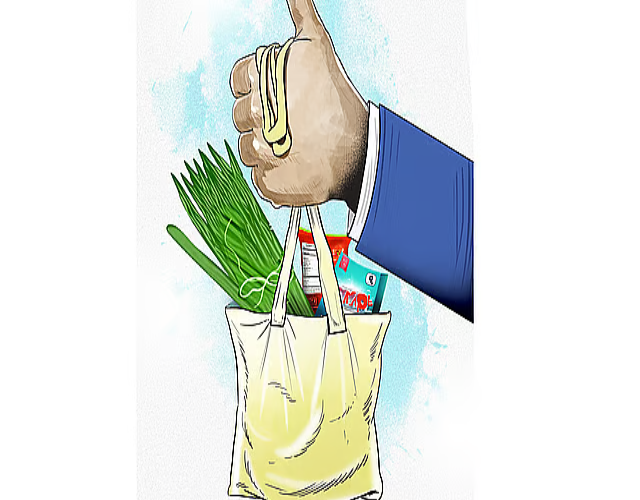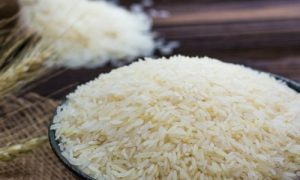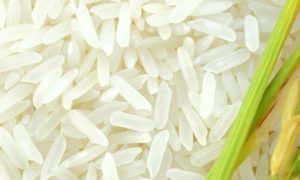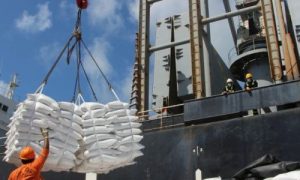OCPB, FDA asked to weigh in on old-rice dispute

The Commerce Ministry plans to sell decade-old rice, sparking concerns about aflatoxin and chemical contamination. Despite challenges, Minister Phumtham aims to auction the rice, estimating a revenue of 200-400 million baht. Calls for inspections by OCPB and FDA arise amid safety worries. Public Health Minister pledges tests, while critics urge caution and transparency in handling the issue.
The Office of the Consumer Protection Board (OCPB) and the Food and Drug Administration (FDA) are being urged to inspect the quality of decade-old rice, which the Commerce Ministry plans to sell amid concerns about aflatoxin and chemical contamination.
The call follows Commerce Minister Phumtham Wechayachai’s rice-eating stunt early this week to build consumer confidence in rice from the ricepledging scheme. It has been stored in warehouses in Surin province since the Yingluck Shinawatra administration. Earlier, a rice expert in Surin challenged Mr Phumtham’s plan to auction the rice for consumption. The minister said he expected to raise about
200-400 million baht from the sale.
Wirangrong Dabbaransi, head of the Network of Universities for Reform, wrote on Facebook on Wednesday that consumer safety watchdogs must intervene and examine the quality and safety of the rice that has been stored for 10 years. She said Mr Phumtham’s rice-eating show could not guarantee the quality or safety of the rice even though it appears to be in “good condition” because it has been through cycles of fumigation for over a decade.
If the rice requires fumigation every month, it would have been through 129 fumigation cycles.
“Washing it 15 times can’t get rid of chemical substances, and this is not to mention aflatoxin,” she said, referring to media reports that the rice was washed 15 times before it was cooked and served to Mr Phumtham and some others who accompanied him. Aflatoxins can occur in food as a result of fungal contamination under warm and humid conditions.
He urged his critics not to dramatise the matter, saying he was trying to manage the old stockpiles of rice and the process was transparent and open to all concerned parties, including senior officials, the press and rice traders.
Public Health Minister Somsak Thepsuthin said he would ask the Department of Medical Sciences to check the quality of the rice and report back to him within seven days. “I have no idea how to comment on this issue because it is a new one that I don’t have enough knowledge about to answer the question of whether people should eat the 10-yearold rice,” he said. Department of Medical Sciences chief Yongyuth Thammawut said the department has no authority to collect the rice samples by itself. Usually, the department conducts tests on request and has not received any such call.She said the government’s plan to sell the rice for consumption poses a threat to public health and stands to undermine the country’s reputation and hurt its credibility in the world market.
Ms Wirangrong challenged him to export the decade-old rice with a quality guarantee if he has full confidence in its quality and safety. Assoc Prof Pantipa Pongpiachan, a lecturer from Chiang Mai University’s faculty of agriculture, posted on Facebook that the rice is unsafe for consumption by humans or animals and should be used in the production of alcohol instead. She said the presence of bugs in the rice indicates the grains were not stored properly and the appearance of the cooked rice — a brownish
colour at the end of the grains — indicates fungal contamination.
“At least one toxin will be detected from a test using the bright greenishyellow fluorescent technique. The toxin can endure heat up to 250C, so the boiling water that cooks the rice can’t destroy it, only some bacteria,” she wrote. Assoc Prof Pantipa said tests for contaminated food can be done at food
labs run by several universities, the Livestock Department and private food labs. Assoc Prof Veerachai Phuttawong of Kasetsart University’s faculty of liberal arts and sciences echoed similar concerns about aflatoxins that can cause cancer in decade-old rice.
Thai Pakdee Party leader Warong Dechgitvigrom on Wednesday cast doubt over the rice quality, pointing out that three rounds of bidding had been held but the bid winners never turned up to collect the goods.
The fourth round of bidding, which was scheduled in January this year, was cancelled one day before the bid submission.
This led Mr Phumtham to inspect the warehouse on March 14 and May 6 and eat the cooked rice in front of the press. Dr Warong also accused Mr Phumtham of putting the brakes on the fourth round of bidding so he could do a publicity stunt. Mr Phumtham on Wednesday remained defiant on his move to sell the
rice amid criticism that he was trying to whitewash the rice-pledging scheme.
Source Link: https://www.bangkokpost.com/thailand/general/2789434/ocpb-fda-asked-to-weigh-in-on-old-rice-dispute














